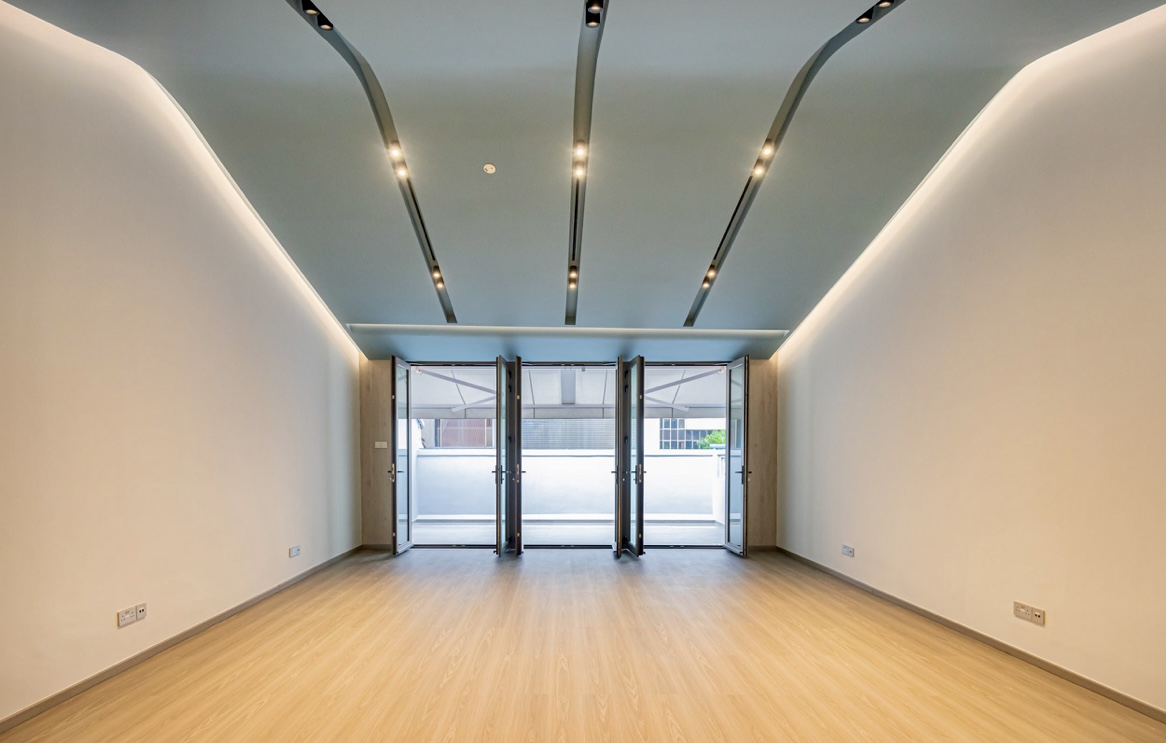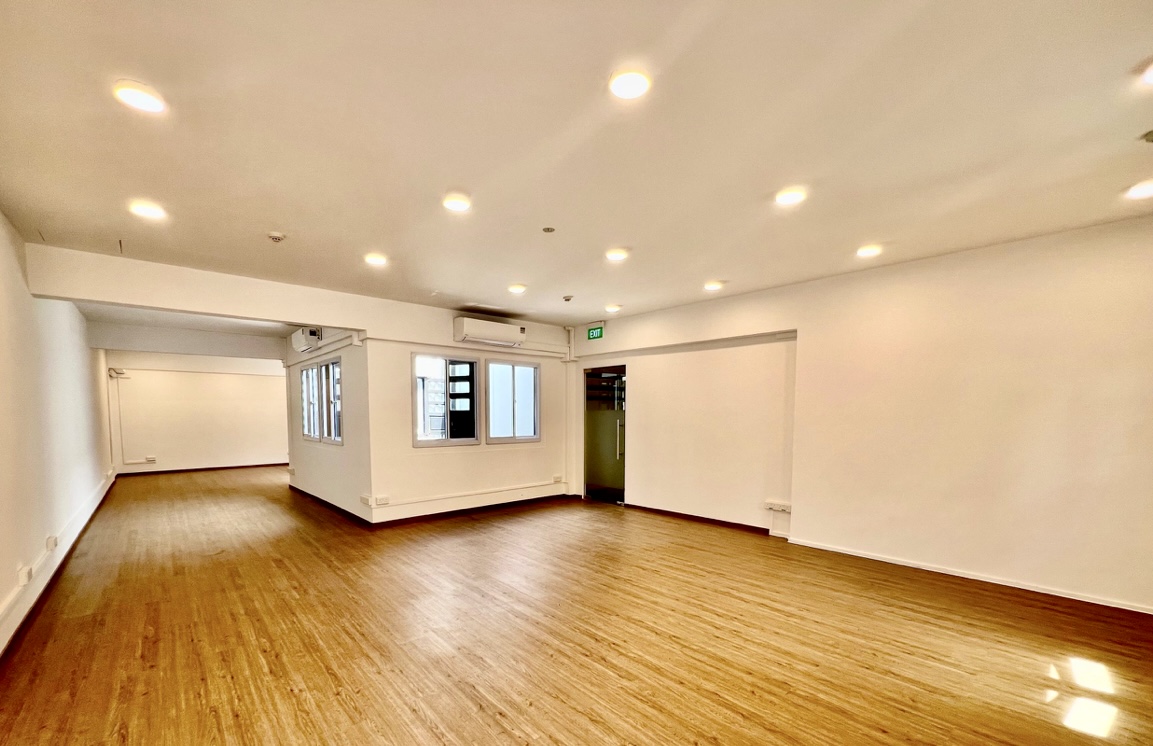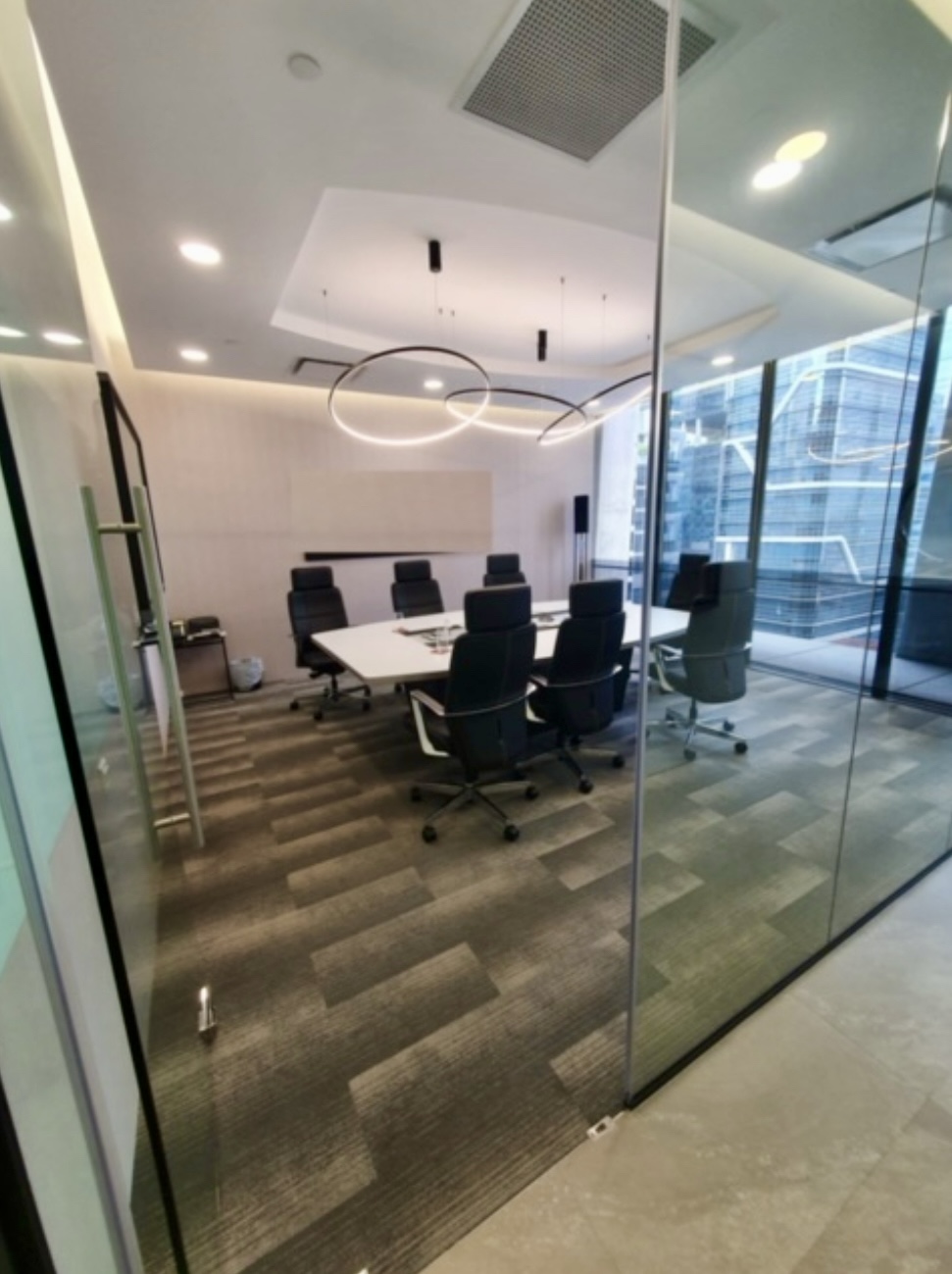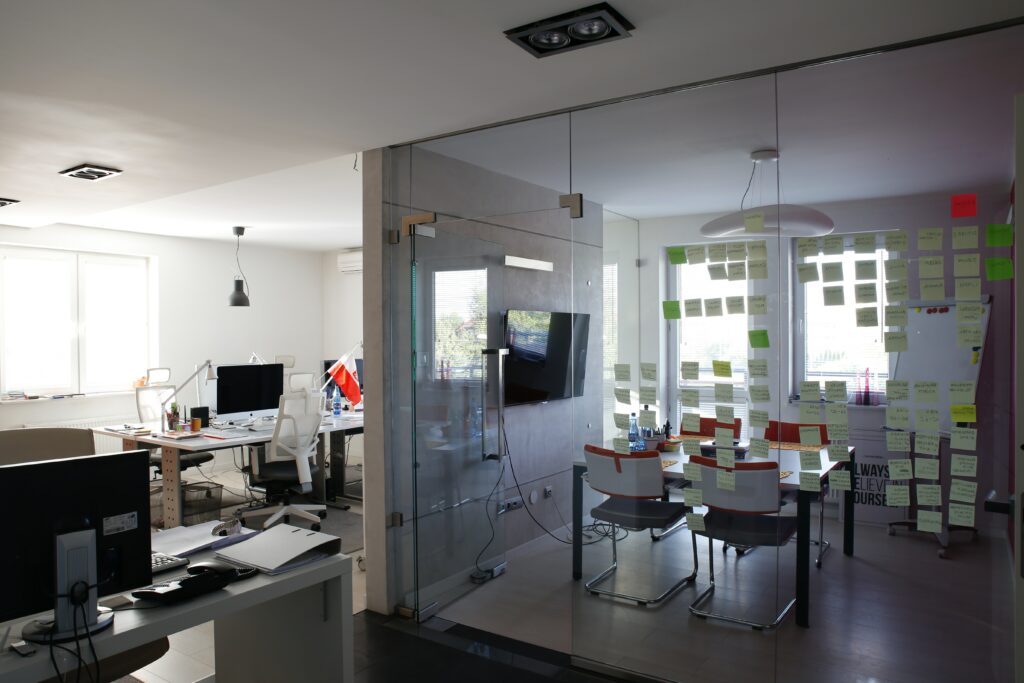Welcome to the world of real estate, where the approach to leasing office spaces revolves around honesty, transparency, and tenant satisfaction. Cultivating long-term relationships built on trust and mutual benefit is crucial for achieving success. With extensive experience, the focus is on striking a balance between landlords’ and tenants’ interests through clear communication and effective negotiation. Embracing modern tools like WhatsApp and negotiation tables facilitates accurate information exchange. The ultimate goal is not just completing transactions but fostering happy clients who see the real estate professional as a reliable partner. By upholding these values, a leasing process is created that withstands the test of time, ensuring mutual success for all parties involved.
What are the most significant obstacles you encounter in maintaining a high level of honesty and transparency throughout the leasing process?
The main obstacles encountered in maintaining a high level of honesty and transparency throughout the leasing process are the temptation to prioritize higher commission over finding the right property for the tenant. However, the belief is that honesty is essential in helping others achieve their goals, and the approach is to find a space that suits the tenant’s needs. The goal is to build long-term relationships with clients and to be transparent throughout the leasing process.
In the beginning, there were challenges faced as a young agent many years ago, including getting rejected by landlords regarding offers. It made one nervous, and there was hesitation to inform the clients. Over the years, the importance of being transparent has been learned. Now, there is a prompt update to tenants on any developments during negotiations, as they are eager to know the progress.
Ultimately, the role is that of a representative of the tenant, negotiating on their behalf, but it is understood that they have the final say in accepting, increasing, or declining the offer. The focus is to support the tenant’s decision and help them secure the space they desire.
How do you handle situations where the landlord’s interests conflict with the best interests of the tenant and how do you navigate these challenges to ensure transparency?
When handling situations where landlord interests conflict with the best interests of the tenant, the approach prioritizes transparency and open communication. Landlords aim to secure good rent from legal and reliable businesses that can make timely payments. They also consider the long-term prospects of the property, as they are in the leasing business. After a tenant leaves, landlords may request the tenant to reinstate the premise, regardless of the furniture’s condition, which can be a concern for tenants who have spent money on fitting out the space. They are required to reinstate the premise at the end of their lease.
On the other hand, tenants have different interests. When they lease a space, they hope to take it as it is and return it in the same condition. They want a quick setup for their office or operation without spending additional money when moving out or when their tenancy agreements expire.
The conflicting interests between landlords and tenants can create challenges in such situations. In Singapore, landlords typically require tenants to reinstate the premise at the end of the lease, unless an incoming tenant agrees to take it as it is, to avoid unnecessary disputes. When tenants decide not to renew, they promptly inform the leasing manager to start marketing the unit, and they may even approach the agent to help with marketing.
Apart from the conflicting interests, there is also a significant difference in rent expectations. Landlords seek higher rent, while tenants aim to save and get the best deal. To bridge this gap, some landlords offer longer rent-free periods to make the rental offer more attractive. They might initially sign the lease with a higher rent, but considering the rent-free period, the actual effective rent becomes lower. This approach aims to create a win-win situation, where both parties are happy with the leasing arrangement.
What are some common pain points or complaints that you've received from the tenants in the past and how have you addressed them to improve the tenant satisfaction?
One common pain point for tenants is when landlords have pre-developed plans that may lead to the need to vacate the property. Often, tenants are asked to vacate within six months of the tenancy by receiving a notice from the landlord. This can be a challenging situation for tenants.
To address this issue, we proactively communicate with the landlord to understand their plans. We ask if there are any intentions to sell or redevelop the property. This helps us assess the likelihood of receiving a redevelopment notice within the first six months of the lease. By gaining this information upfront, we can inform tenants and help them make informed decisions about leasing the property.
Another common complaint from tenants is noise from surrounding buildings, especially during construction or tearing down activities. To tackle this, we share tenant feedback with the building management. They take the necessary steps to improve the situation, such as providing better soundproofing or being more mindful of construction activities.
Overall, our approach is to be transparent with tenants about potential challenges they may face and work with landlords and building management to find solutions that create a positive and comfortable leasing experience.
Another common issue that tenants may raise is regarding the rental cost. They might feel that the rent has increased significantly and is beyond their budget. In such cases, the goal is to find them alternative spaces with more affordable rental rates. This way, the focus is on addressing their concerns and helping them find a suitable option that fits their budget.
How do you cope with situations where there are unexpected challenges or delays in the leasing process and how do you mitigate the potential dissatisfaction?
Recently, I encountered a similar situation while handing over space to a tenant. Due to overseas legal requirements, there was a significant delay of about two weeks in finalizing the clauses in the tenancy agreement. This caused feelings of nervousness and anxiety for both our team and the tenant’s representative.
To address this potential issue, we anticipated the possibility of delays and requested a more extended rent-free period for the tenant. Thankfully, our request was approved, and the tenant had enough time to fit out the premises despite the delayed handover. In this particular case, the delay extended to almost a month.
When facing situations where the rent-free period is too short, we collaborate with the landlord and, upon their approval, arrange for a later handover date. However, some factors, such as overseas legal requirements, are beyond our control, and we must adapt accordingly.
In such scenarios, I find it essential to communicate openly with the tenants and provide them with information about the specimen tenancy agreement and common questions asked by tenants. However, it’s important to note that legal matters require careful attention to detail, and tenants may still take their time reviewing the agreement.
Another potential delay can occur when dealing with larger units landlords want to subdivide. Delays caused by contractors can be mitigated through effective project management. Over the years, I have learned that having a dedicated project manager, either from the landlord’s or agent’s side, is crucial to ensure timely delivery of the space.
What steps do you take to ensure that all parties involved in the same process understand the importance of honesty, transparency and tenant satisfaction and how do you foster a collaborative environment to edge address the potential pain points proactively?
The steps I usually take involve keeping the tenant updated whenever we receive responses from landlords. I believe in transparent communication, so I openly share any information with the tenant. In cases where a tenant has more than one decision-maker, such as multiple bosses, I ensure that everyone involved is kept in the loop. This approach fosters a better environment and ensures everyone is well aware of the current situation.
If at any point someone notices something that doesn’t seem right, questions will arise, and I will promptly address these concerns with the landlord. Open communication is key to resolving any issues and maintaining a positive leasing process.
What challenges have you faced in cultivating long-term relationships with tenants and how have you overcome these challenges to build trust and mutual benefit?
The challenge in cultivating long-term relationships with tenants is that people often move from one place to another. This means that even if a strong connection is built with a particular office manager, they may move to another company, and the relationship has to be started anew. However, there’s a positive side to this challenge. Sometimes, after a few years, they may bring the services to their new office, and the friendship continues.
To overcome these challenges and foster trust with clients, a close connection is maintained with them. The team and I use social media to stay connected, which helps build better relationships and mutual benefits. The aim is for clients to grow, and in turn, it is hoped that they’ll return when they need a bigger or better quality space. To achieve this, recommendations are made to clients’ services when there’s an opportunity. Cross-selling benefits both parties and creates a sense of mutual benefit.
How do you address situations when a tenant feels they were misled or given inaccurate information about the lease space or lease terms?
Misleading or providing inaccurate information about a leased space or lease terms is a critical issue with legal implications. Personally, I am not legally trained, but over the years, our team has developed strategies to handle such situations. Modern tools like WhatsApp have been beneficial, as messages sent by agents and received by tenants are visible to both parties. This ensures transparency, capturing essential details like floor area and asking price before signing.
When tenants have specific questions, our team promptly checks with the landlord and provides them with accurate information. This clear and direct communication prevents any misleading details, especially regarding lease terms, which can be risky territory for agents. Additionally, after COVID, many agencies and landlords use negotiation tables, benefiting all three parties involved. It provides a clearer picture of terms and minimizes the chances of misinformation.
Regarding space usage, most of the spaces we market are for offices. If tenants intend to use the space for non-office-related purposes, like a gym or specific services, we guide them to check the URA website’s master plan. The master plan offers easy access to relevant information, and queries are quickly addressed by officers.
Overall, thanks to technology, the real estate industry has evolved positively. Compared to 15 years ago, when verbal communication led to potential misunderstandings, modern tools ensure consistency and accuracy in information sharing, benefiting all parties involved.
Conclusion
In conclusion, the real estate landscape thrives on building lasting relationships rooted in trust and mutual benefit. Honesty and transparency form the cornerstones of successful leasing processes, ensuring both landlords and tenants are satisfied. Effective communication, supported by modern technology, is pivotal in minimizing misunderstandings and providing accurate information.
The goal is not just completing transactions but creating contented clients who view their real estate partner as a reliable ally, by prioritizing integrity and openness, a harmonious and productive leasing experience can be achieved, benefiting all parties involved.
Navigating the complexities of leasing office spaces requires skillful negotiation and a commitment to transparency. Upholding these principles fosters enduring partnerships and sets the stage for a prosperous journey in the ever-evolving real estate industry.
Ready to Discover Your Ideal Workspace?
Are you seeking the perfect office space that meets your needs and requirements? We’re experienced real estate professionals to guide you through a leasing process founded on honesty, transparency, and tenant satisfaction. Whether you’re a business owner looking for your next workspace or a landlord in search of trusted representation, we’re committed to ensuring your success.
Connect with us now to embark on a journey towards a harmonious and prosperous leasing experience.













